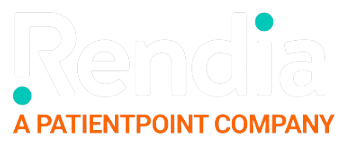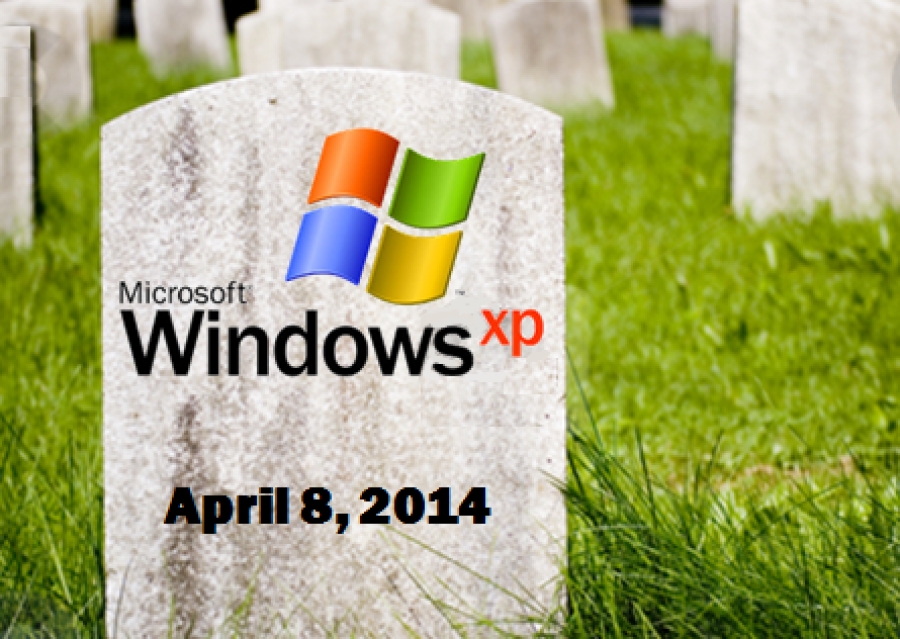After 12 years, six months, and 15 days, Wednesday was D-Day for Microsoft’s Windows XP operating system. Microsoft says it will no longer provide security updates, issue fixes to non-security related problems or offer online technical content updates. The final “Patch Tuesday” for Windows XP was issued on April 8th, so download that final patch. Now.
But who is still using Windows XP, an operating system that is over 10 years old and three Windows Operating Systems behind? As it turns out, a lot of people. StatCounter shows over 13 percent of US computers, tablets or consoles were still running Windows XP as of this month. Is your health care practice one of them? If so, you probably view the job of upgrading as a costly, risky chore that can be deferred. If it isn’t broken, why fix it. Many health care practices just aren’t focused on the technology side of the practice. There is also the often hefty cost of upgrading. As a consumer you can can buy an entry-level PC for $300 or less, but a computer powerful enough to run a large medical practice is going to be considerably more expensive, especially to make sure it is compatible with existing EHR/EMR and medical billing software. Smaller health care providers are especially vulnerable because they may not have the same kind of in-house expertise larger practices possess. A further problem is that health care related information is attractive to criminals because it can be used to create fraudulent medical claims and illegally obtain prescription drugs. HIPAA also looms for practices because of the rules regarding the confidentiality of patient medical information. If you do not upgrade and a breach occurs, it could fall under the purposeful violations section of HIPAA where a lawyer could argue that the practice failed to secure confidential information or deliberately compromised electronic record security measures by failing to upgrade.

If you keep Windows XP Going – Some Advice
For some practices, it may be a while before you upgrade. There may be budgetary or time constraints, pre-planned upgrades happening in a few months, or you are just going to carry on for now. So is there anything you can do to minimize your risk?
Web Browsers
Make sure you are using Google’s Chrome or Mozilla’s Firefox as your practice’s default web browser. Your web browser is frequently the place where users get infected with malware or a virus, often unwittingly. Why these browsers? The latest version of Internet Explorer, IE 11, isn’t even available on XP and if you are using XP, you are probably on IE 8, or earlier, which is three generations behind and five years old. The other reason to use Chrome and Firefox is that both Google and Mozilla have committed to supporting XP for at least another year. Regardless of your reasons for continuing with XP, you do need to start thinking about the move to a new operating system.
So what are your operating system options?
If you are reluctant to change your habits, the easiest choice is to upgrade to Windows 7. You can make it look and feel exactly like Windows XP, and it offers far better security. Hold on, doesn’t this skip a generation? Yes, this does avoid the ill-fated Windows Vista and the migration is not as straightforward as you might hope. If precautions are not taken, this migration process will wipe out all of the practice software applications, program settings and data files. To ensure a smooth transfer, the best way is to move them to a separate drive beforehand, so that you can move everything back after the installation. Another alternative, if your computer supports it, is Windows 8.1. Yes it is different from Windows XP, but 8.1 ironically makes the system more like Windows 7 and therefore more like Windows XP, go figure. Windows 8.1 brings back the “start” button, offering that traditional Windows look and feel, which your practice staff are already used to. A recent survey found that 75 percent of doctors own one or more Apple devices and a lot of our customers already use iPads in the practice. Few, however, use Apple as their operating system. Few EMRs are designed specifically for Apple, so options are limited. One other consideration is that if you treat Medicaid/Medicare patients and want to continue to meet “meaningful use” under the HITECH Act of 2009, you should make sure any EMR is certified by one of the ONC-Authorized Testing and Certification Bodies (ONC-ATCBs). If you want to use the upgrade opportunity as a great long term investment, then consider how we provide Echo to our customers. Echo is hosted online, meaning it can be accessed anywhere from any device with an Internet connection. The benefits for us and our customers include access to an IT platform at a fraction of the cost of traditional infrastructure, lower monthly costs than hosting on-site, and a fast, scalable, highly flexible and extremely reliable system. For practices that qualify, our Echo software – which provides closed-captioning, can help offset any upgrade fees. You will need to ask your tax advisor if your practice qualifies. One final point is that Echo will continue to run on computers with Windows XP.
Conclusion
We know that for some practices, moving away from Windows XP is going to be a chore. But change is necessary since computers require updates — especially if you want to keep the information stored on them and transmitted between them secure. Bye bye XP!


